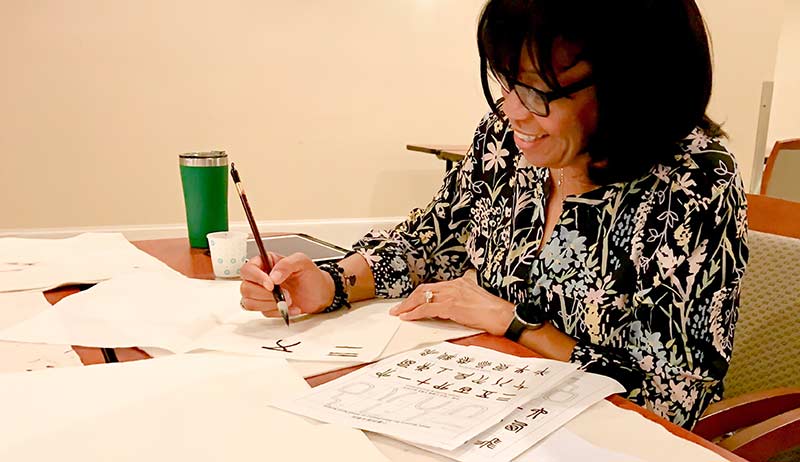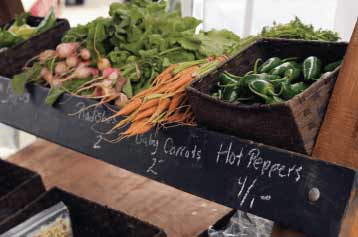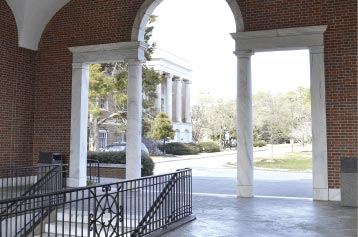Wesleyan has prepared some wonderful classes that will take place both in-person and online using Zoom video conferencing. When registering for classes, please be mindful of the Location for each class. The Zoom meeting link and classroom details will be distributed via email one week before each class begins. If you are interested in attending any of these courses, please register today, if you are already a member of WALL login to your current membership or email lifelonglearning@wesleyancollege.edu with your class(es) of interest.

Since retiring as CFO of Wesleyan College (2000-2016), Mr. Maier has traveled to Alaska over five summers, including one full season as a driver/guide with Holland America Princess. He's driven up the Alaska Highway three times, traveled by air to join tour groups, and cruised the Inner Passage. Session 1: The history of the Last Frontier, from Beringia to today. Session 2: Highlights of the National Parks, climate, gold/oil/other natural resources, military significance, and unique wildlife.
Session 3: Demographics, Native claims, cities, economy, education, culture, and sports. Session 4: A variety of ways to experience Alaska based on your time, budget, and interests, including popular excursions.
Vince Coughlin, Founder of WALL and cat lover since 1966, has presented numerous courses for WALL. This course traces the use and abuse of cats from ancient Egypt to the present, with some humor included! The class starts with ancient Egyptians utilizing domestic cats for pest control. They also worshiped the cat goddess Bastet. Often cats were mummified and accompanied their owners into the afterlife. Later, the Vikings also utilized cats for rodent control on their ships, and, when the cats reached the end of their useful lives, their pelts were used as clothing. In 1233 Pope Gregory IX issued “Vox in Rama” declaring that cats carried Satan’s spirit. This led to the mass extermination of cats after which the rat population soared resulting in the Black Death caused by the fleas carried by the rats. Cats, especially black cats, were associated with witches. They figured in the Salem Witch Trials which occurred in 1692 and 1693. The accused were presumed guilty and denied defense counsel. These trials led to a change in U.S. law where the accused are now presumed innocent and have access to defense counsel. Cats also distinguished themselves individually. 'Simon' a cat aboard a British ship was awarded the Dickin Medal for Gallantry when wounded when his ship was fired on by Chinese Communists in 1949. The CIA developed an “Acoustic Cat” by putting a small microphone in its ear, a transmitter under its fur, and an antenna woven through its fur. The intent was to use the cat to eavesdrop on suspected spies. Agents carried the cat to a park where two suspected spies were talking. The agents put the cat near the bench, but the plan went terribly wrong. Apparently, no one at the CIA knew that you can’t train a cat! (Class limited to 30 by room size.)
Winemaking for Ms. Kane has become a Third Chapter in her career. Travels during her time in the Air Force and as a government contractor took her to many of the leading winemaking regions of the world, growing her passion for wines and the winemaking process. Ms. Kane began making wine as a hobby in 2015. Then in 2019 she took the leap to become a professional vintner, planting a 4-acre wine grape vineyard in Peach County and opening Highland Farms Winery in 2023. This will be a wine appreciation course, giving students knowledge of the art, artistry, and science of wine. The class will begin with the history of winemaking, then cover types of grapes, styles of wine, and the modern wine regions of the world. The class will then move to the process of winemaking and how it differs with each harvest and vintage. The class will end with a wine tasting to introduce students to little known regions and varietals. (There is a $15 fee for the wine tasting.)
Dr. Wilson, Ph.D., had a 43 year teaching career, including 34 years at Mercer University, 20 of which he was chair of the Columbus Roberts Department of Religion. Since 2007 he has made 21 trips to Liberia that included teaching, administrative tasks (three years as President of the Liberia Baptist Theological Seminary in Monrovia) and extensive travel in country that included ten of the fifteen counties. The American Colonization Society was founded in 1816 by elite Northeasterners in the U.S. who were concerned about a growing population of freedmen (former black slaves). The Society’s goal was to relocate black people to Africa. They succeeded in securing land in West Africa and established Liberia as a colony in 1822. From 1822 until 1847 Liberia was a colony of the U.S. From 1847 until 1980 Liberia was led by Americo-Liberians (those who descended from freed slaves). After 1980 Liberia descended into the chaos of two civil wars fomented by the assassination of President Samuel K. Doe in 1990. In 2003 Liberia returned to the status of a democratic republic with the election of President Ellen Johnson Sirleaf.
Patrick Bradley has a Master’s degree in history (ABT) from Georgia Southern and taught undergraduate classes through an assistantship. As an avid student of history since then, he continues to read non-fiction history and has expanded his knowledge of Russian history. This class will follow the course of Russian history from the ascension of Peter the Great (early 18th century) to the present. Topics include the move to westernize Russia, Catherine the Great, serf uprisings and assassination attempts, the October Revolution, the Soviet Era, the rise of the oligarchs, and the rise of Putin.
Delmas Crisp, Ph.D., specialized in Medieval and Renaissance literature and linguistics and has taught Chaucer at Southwestern Louisiana University, Wesleyan College, and Methodist University. This Canterbury Tales class will study some of Chaucer’s most popular “tales” which focus on marriage, including those tales told by the Nun’s Priest, the Wife of Bath, the Clerk, the Merchant, and the Franklin. If time permits, the class will also read the tales told by the Reeve and the Miller. Dr. Crisp says, “We’ll enjoy the tales and also the dramatic interplay among the pilgrims! Can’t wait!” (Class limited to 30 by room size)
Dr. Reeves holds a Ph.D. from the University of Toronto’s Centre for Medieval Studies and teaches history at Middle Georgia State University. His scholarly research covers the religious life of laypeople in the Middle Ages, which frequently touches on belief in and practice of magic. Dr. Reeves has taught undergraduate courses on the history of magic. People in the Middle Ages believed in magic and many tried to practice it. From the village healer who provided charms and love potions to the learned astrologer who attempted to harness the power of the heavens, magic saturated medieval life. But people also feared magic, and this fear of those who might work harmful magic culminated in the horror of the witch hunts of the late Middle Ages and Renaissance. The class will take a month to look at how belief in magic found expression in the European Middle Ages.
Since the early days of WALL, Dr. Fowler has regularly presented a course titled “Women of the Bible.” Participants have come to know characters of the Bible more intimately than the text allows through the Chautauqua style of character presentation: 1. introduction to the biblical context; 2. monologue (in character, with only a head scarf for costume); 3. dialogue with audience; and 4. follow up by the instructor. Participants are encouraged to listen carefully to the monologue and prepare to dialogue with the biblical character, saving their questions for the instructor after the head scarf is removed. Dr. Fowler was president of Wesleyan College from 2017-2022 and Vice President for Academic Affairs at Wesleyan from 2007-2017. She is a clergy member of the South Carolina Conference of the United Methodist Church who serves part-time as pastor of Epworth UMC in Charleston, SC.
Often called “Land of the Morning Calm,” Korea’s history has often seen the calm disappear like the morning mist. Understanding the geography and breath-taking beauty sets the context for its history and culture. A brief history will focus on King Sejong and Admiral Yi in the Korean “renaissance” period. The catastrophic wars and occupations of the late 1800’s through WWII and the Korean War will set the stage for the astonishing rebirth of South Korea–and the tragic enduring struggles of North Korea. Bill Hargrave, Ed.D., brings a wealth of personal experience to the course, having served with the U.S. Army in the northern area of Korea and taught (48 years later) at Chonnam National University in Gwanju, Korea, for 2 years. Bob Moon, D.Min., pastored South Georgia Methodist churches for 43 years. His two brothers and two sisters-in-law taught in Korea a collective 100+ years.
Ms. Heard is a mixed media artist and the founder of Lush Art, located in Perry, Georgia. Her mission is to help people tap into their creativity and find joy and fulfillment through the transformative power of art. Ms. Heard also co-facilitates the 478 Creatives group in Middle Georgia. In this class participants will embark on an artistic journey through the seasons. Each weekly session will correspond to a different season, and the instructor will guide participants through activities and discussions that align with the unique energy and symbolism of that time of year. From awakening the creative spirit in winter to blooming with inspiration in spring, flourishing expression in summer, and harvesting wisdom in fall, participants explore intuitive painting techniques, symbolism, and personal reflection to create meaningful mixed media artworks reflective of their inner journey. Ms. Heard will send students a letter before the first class explaining about the collage items that they should bring to class for their projects. These might include concert tickets, cocktail napkins, old keys, unused scrapbook paper, broken jewelry, or even personally meaningful items from the junk drawer! (There is a $15 fee for art supplies supplied by Ms. Heard. Class limited to 20 by studio size.)
This course examines the roots of racism in Macon through the Refounding Macon film series created for Mercer University's Beloved Community Initiative and which includes interviews with many well-known Maconites. The Beloved Community Initiative began 18 years ago and is centered by a symposium at Mercer founded by John Dunaway, Mercer professor emeritus. Refounding Macon consists of four films, 12-20 minutes each, that tell the story of Macon's racial history. Each week class members will watch a video that shares the history of slavery, reconstruction, segregation, and integration in Macon. The videos will lead to discussion of Macon's racial history. As members learn more about Macon's past, they are invited to wonder what can be changed about the trajectory for the future in how Macon shapes the “beloved community.” Rev. Sara Pugh Montgomery, who originally hails from North Carolina, is the senior pastor at Centenary UMC in Macon. Rev. Pugh Montgomery meets regularly with many other clergy leaders in town as Macon strives to build the “beloved community.” (Class limited to 30 by room size)
The worst sports disaster in U.S. sports history took place November 14, 1970, near Huntington, WV. The plane carrying nearly the entire Marshall University football team, coaching staff, and local boosters crashed on approach to Tri-State Airport, killing all 75 persons on board. The movie, released in 2006, takes details of what followed with a good bit of literary license. This class will introduce some of the actual characters and explain the continuing impact of this tragedy on the school and the community. Ms. Thornburg is a graduate of Marshall University, both B.A. and M.A., and is currently semi-retired.
The British are well known for their afternoon tea. Tourists to London will often choose to have high tea at Harrods or another famous hotel. Where does this tradition come from and what purpose did it play in the role of High Tea across the British Empire during the reign of Queen Victoria? The class will look at this delightful daily act and see how it played such an important role, especially for women, in the life of the Empire. Similarly, at home, tea played a vital part in everyday British life, and this too will be examined. The second lecture will primarily be an opportunity to sample a traditional, delicious High Tea. Dr. Blake, born, raised, and educated in England, is President of Middle Georgia State University. He assumed his post on January 1, 2014. Dr. Blake holds bachelor’s and master’s degrees in theology from the Keble College of Oxford University, a postgraduate certificate in education from Westminster College (Oxford), and a Ph.D. in education from King’s College of the University of London. (RSVP required for High Tea. There is a $15 fee for the High Tea. Class limited to 50.)

Wesleyan College is privileged to steward many arts and cultural events and share them with the community. Most are free and open to the public. Wesleyan art galleries are open M-F 1-5PM and on Wesleyan Market Saturdays from 10AM-2PM.
Event listing
Tour our beautiful 200-acre campus featuring Georgian architecture, lush green spaces, recreational facilities, residence halls, and worship center.
Vist Wesleyan Virtually
Wesleyan College is home to five NCAA Division III sports: soccer, basketball, volleyball, tennis, and softball. In addition, we offer an award-winning Intercollegiate Horse Show Association (IHSA) Equestrian program.
View More